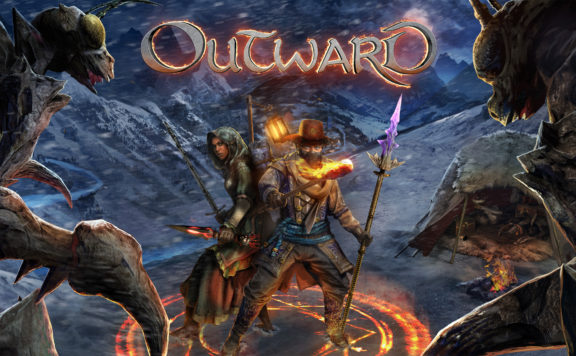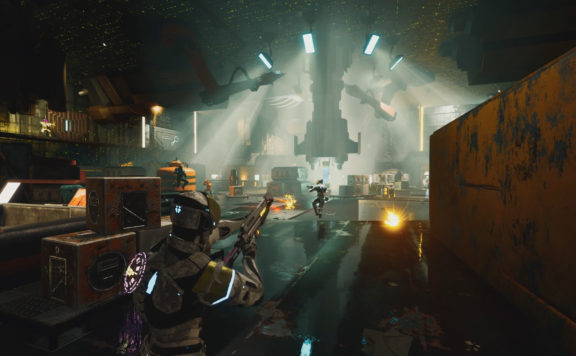Fictorum is labeled as an action RPG featuring destructible environments, with a procedural node-based world map and dynamic magic shaping. Quite a few things are thrown together in one game, yes? So that begs the question did they all meld together well to make a good game? Let’s delve into the game and find out. This is our Fictorum review.
First, we’ll touch on the map and the story. During the map phase of the game, you pick from linked areas and go from there, continuing onward towards the end all the while staying ahead of the inquisition or picking a particular area for a shop option. It very much has an FTL vibe. After you pick your new travel point you are greeted with a scroll which adds bits and pieces to the whole story. The story begins with you being the last of an ancient mage order called the Fictorum (the rest of your Order having been wiped out by The Inquisition). While I appreciated the little bits of story added here and there in this manner, I would have liked a cutscene or two along the way to help push for more emotional connection to your character or the people around you. I understood what they were trying to do with using this map traveling style, it feels like it could have been used better or perhaps had more polish to it.

Let’s talk about the meat of the game: the magic. At its core, Fictorum is about the magic system and the ability to destroy objects with it in various ways. You have access to a few secondary magics like rock wall or blink, etc. But the core of the rests in either Fire, Ice or Lightning spells. Each school has several different spells like ice lance or ice nova, but it is these spell schools which let you use the games magic enhancing system. YOu have 3 different spots where you can place magic runes that enhance a spell you’re casting. Normally you just left click and let fly, but if you right click and hold dragging the mouse to one particular rune or to all three, you gain the benefits of things like faster spell speed, longer range, etc. All of this comes with the cost of a long cast and more mana used. So you have a decent amount of spells to use with various effects to destroy things that get in your way. The system allows for some nice spell variety, which you need as you lay waste to everything in your path.
The big point of Fictorum is using spells to destroy your environment. As you battle your way through bandits and The Inquisition, you can also destroy towers and houses laying waste to those inside or using the flying debris to kill who you’re fighting. At times the physics work good and at other times I’m literally running from a piece of wall flying at Mach 3 from a house. While the system is neat, it definitely felt raw and there was room for improvement. There were times I flung a fireball and it simply smoldered on the wall and then other times it was like setting off a mini nuke.

Overall I hesitate to call Fictorum a bad game. Because at the end of the day I have to ask myself did I have fun playing it? I did at times. But I feel there is so much room for improvement in the game. The big point is the magic and physics, but the AI of the enemy could’ve used a boost (more often than not, they just charged at me single file). What bits I read of the story had me interested to know more, but I felt no sympathy for my character nor did I care that I was casting magic at soldiers of the Inquisition or helpless villagers. That’s the biggest thing I came away from Fictorum with, yes it was fun, but did I care about what I was doing?
Fictorum Review Score: 5.5/10
Pros:
- Physics based destructive magic system
- Lots of different spells/items
Con:
- Character/story disconnect
- Poor AI
- Wonky building destruction at times
- Repetitive
- The travel map felt basic/raw







